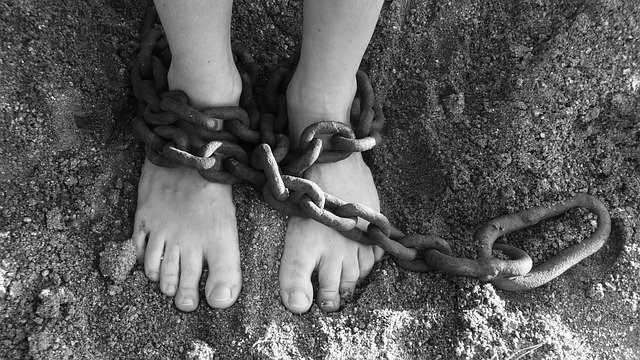How does police harass people?

The ingenuity of the cops knows no bounds when it comes to finding ingenious ways to harass people.
Bail V/s Jail
In practice, jail is the rule, bail is an exception
One of the most popular ways of harassing people is to oppose bail all the time.
In Dataram (2018), the Supreme Court re-enunciated the famous principle that bail is the rule and refusal is the exception. Still, the lower courts are generally wary of granting bail and most people do not have the resources to approach the High Courts or the Supreme Court. Consequently, most accused persons remain incarcerated as under-trials for extended periods of time. Their plight is worse if they are poor or belong to underprivileged groups.
There is no good reason that the police should necessarily oppose bail in every case. Yet they do. What does it show? It shows that, in their minds, they still harbour a notion that if they arrest someone, he is necessarily guilty and he loses all his rights until he is convicted. One who comes into their grip, rightly or wrongly, has to be made to suffer because, in their opinion, it reinforces the coercive power of the State over the people and keeps them sufficiently subdued.
Then there is this problem of monetary surety bonds. In the case of Moti Ram (1978), Justice V. R. Krishna Iyer had identified the issue of unreasonably high sureties as a human rights problem. The Court then suggested that surety amounts be determined by considering relevant variables such as the socio-economic location of the accused person.
In Roop Kishore Madan (2000), it has been held that anticipatory bail must be granted in cases where the accused is not likely to abscond. Though it is a judicial function, the police have a bad habit of rushing to arrest someone the moment his application for anticipatory bail is rejected. In M. C. Abraham et al (2002), it was held that the mere fact that the bail application of somebody had been rejected was no ground for directing their immediate arrest
Summoning people unnecessarily and repeatedly to the police station to harass them

What does the law say?
Under Section 160 CrPC, the police are empowered to summon any person to the police station. However, this power is granted only for the purpose of assisting them in the investigation of some registered cases. In the case of Amandeep Singh Johar (2018), the Court has prescribed a detailed procedure for issuing notices to the people. By this order, the Court intended to ensure that the public at large ought not to be harassed by the police by being summoned to appear for enquiry even in cases where any criminal proceeding was yet to be instituted.
What do they really do?
In practice, it is extremely common for citizens to be threatened by a notice from the police under Section 160 CrPC, asking them to appear at the police station in connection with some offence they might have some knowledge about or they might be likely to figure out as accused in some offence. Since it inconveniences most people—they have to take leave if they are in jobs, or shut down their businesses for the day—they are understandably wary of it. Leave may not be granted when requested and one could possibly not afford the loss of the income of a day’s business.
It is very common for the police to issue notices even without any FIR having been lodged and registered. The contents of such notices do not mention anything about the matter they are inquiring into. As such, the person called has no idea of what he is being called for. Still, if he does not comply, leave all his work and appear before the police, he invites penal action under Section 174 IPC, which provide for the penalty in cases of non-obedience of orders of attendance. A notice under Section 160 CrPC often becomes a pretext to arrest. The person goes to the police station and is surprised by getting arrested there.

Your legal rights that you are often deprived of by the police
There are some rights accruing from certain judgments you must know. The police may well crush them under their boots, but knowing them means that in future, you may agitate before the Court.
Right to remain silent:
The Supreme Court was acutely aware of the police harassing citizens by summoning them to the police station. In Nandini Satpathy (1978), it laid down several fundamental safeguards. It is a different thing that, in practice, the police officers do not care about them. Justice V. R. Krishna Iyer spoke of the necessity of more steps for ‘effective barricades against police pressure to secure self-incrimination’.
The Supreme Court observed that if there is any mode of pressure, subtle or crude, mental or physical, direct or indirect but sufficiently substantial, applied by the policeman for obtaining information from an accused, it becomes ‘compelled testimony’ violative of Art. 20(3). The pressure mentioned above includes not merely threats of physical violence but also psychological torture; long, tiring, drawn-out interrogations; and overbearing and intimidating methods. In fact, the Supreme Court also mentioned ‘tone of command perilously hovering near compulsion’. A threat that the person will be prosecuted if he refuses to answer is also that kind of illegal pressure.
However, these days you would often read in papers that the police, CBI, ED or NIA grilled so-and-so for 11 hours or more! This is ridiculous. There is no reason that they cannot do it over two-three days? To make a person who has never had a brush with the police, withstand questioning under an intimidating atmosphere is a form of torture.

Right to Free Legal Aid:
As held in the cases of Hussainara Khatoon (1979) and Khatri (1981), the State is under a constitutional obligation to provide free legal services not only at the stage of the trial (as provided under Section 304 CrPC) but also at the stage when the accused is first produced before the magistrate as also when he is remanded from time to time. Further, it was held in the case of Suk Das (1986) that unless the accused declined the offer of free legal aid, it would make a mockery of legal aid if it were to be left to a poor ignorant and illiterate accused to ask for free legal services. It should be provided without his asking for it.
Right to Medical Examination for Complaints of Torture:
Most people are not aware that they have a right to be medically examined in case they have been beaten up or tortured in police custody before they are produced before the magistrate. In Sheela Barse (1983), it was held that the magistrate before whom an arrested person is produced shall enquire from him whether he has any complaint of torture or maltreatment in police custody and inform him that he has a right to be medically examined.
Indian police have devised a simple counter to this. The stock excuse is that they did not beat up the arrested person but it was an irate mob that had beaten him when they went to arrest him. If need be, they can always produce many stock witnesses that there was indeed an assault by the public, the police were outnumbered and hence they could not prevent it. If they had tried, they would have been obliged to open fire and that would have complicated matters further.

Right of the Injured in Medico-Legal Cases to Medical Treatment:
In Paramanand Katara (1989), it was held that doctors, whether the government or private, are under an obligation to attend to an injured person in a medico-legal case also and cannot insist that they will treat only when an FIR is registered. The Supreme Court provided that doctors should not be unnecessarily harassed for purposes of interrogation or for any other formality and should not be dragged during investigations at the police station and it should be avoided as far as possible
However, the catch is that the law did not provide for any punishment to those doctors who still refuse to do so. Ordinary citizens cannot afford to waste their lives and lifetime earnings filing contempt of Court cases.
Right of Injured to be attended to by the Cops even before FIR:
In Animireddy (2008), it was held that a police officer must go to the place of an incident and attend to the injured even before the FIR regarding that incident is registered.

